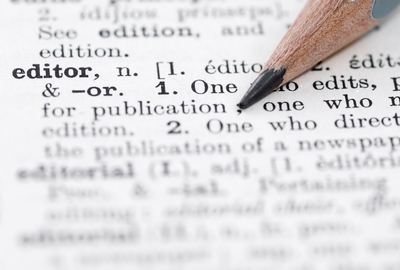 It’s not all that long ago that editors were invisible or, if their presence was recognized, dismissed as nitpickers or as dangerous meddlers in the creative writing process. “Let’s Kill All the Copyeditors,” ran one newspaper headline. Renowned professor Jacques Barzun railed against the errors that “tone deaf” editors introduced to his texts in his article, “Behind the Blue Pencil.” And, in 2007–08, the New Yorker exposed Gordon Lish’s intrusive substantive editing that completely changed the voice and structure of Raymond Carver’s early short stories.
It’s not all that long ago that editors were invisible or, if their presence was recognized, dismissed as nitpickers or as dangerous meddlers in the creative writing process. “Let’s Kill All the Copyeditors,” ran one newspaper headline. Renowned professor Jacques Barzun railed against the errors that “tone deaf” editors introduced to his texts in his article, “Behind the Blue Pencil.” And, in 2007–08, the New Yorker exposed Gordon Lish’s intrusive substantive editing that completely changed the voice and structure of Raymond Carver’s early short stories.
In recent years, however, editors have occasionally appeared in films or in fiction as major, even attractive, figures. In real life, too, a few in-house editors have been honoured with their own imprints, while others have become known as “book doctors,” endowed with the magic needed to transform “promising” manuscripts into major bestsellers. Beginning in 2011, the New York Times Magazine added the editor’s name and email address right below the article author’s name on its contents page. What greater recognition can editors get than that?
I’ve been thinking about this “mysterious relationship” between authors and their editors ever since Darcy Cullen asked me to write an article for her collection Editors, Scholars, and the Social Text (University of Toronto Press, 2012). Inevitably the research involved asking many authors what they really wanted from editors. To my surprise, I found that they craved more editing, not less, particularly of the macro kind. Well-known journalist Richard Gwyn, the author of the award-winning biography of John A. Macdonald, looked for a “first-rate editor” who would become a “partner” in organizing and presenting the final text. Professor John English, the author of the successful Trudeau biography, wanted his editor to focus on the overall effect of the argument, the clarity of the writing, and the details of grammar and facts. Sarah Jennings, an experienced media journalist, hoped for a “creative producer” in her editor, someone to “bring out” the best in the narrative she had written. And Meredith Chilton, the editor-in-chief of a complex academic project, requested someone able to “organize and meld the entire manuscript together,” making the text accessible to readers while not losing the authors’ individual voices.
Ironically, just as editors are achieving recognition, advances in technology are causing huge changes in the publishing and communications industries. Editorial budgets are being slashed, writers are self-publishing, and no one seems to know how the future will shape up. What is your experience as an editor today, in whatever area you work? And how do you think our skills and our experience can best fit into the world of tomorrow?
Discover more from The Editors' Weekly
Subscribe to get the latest posts sent to your email.
